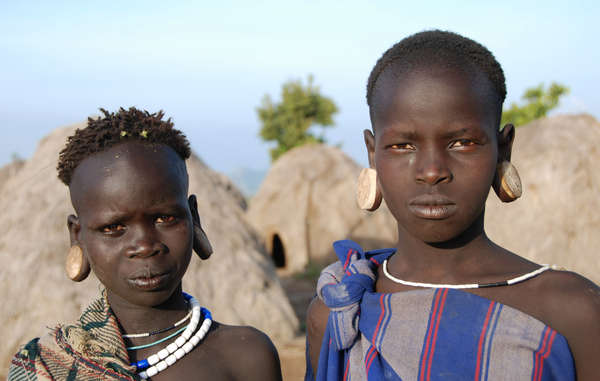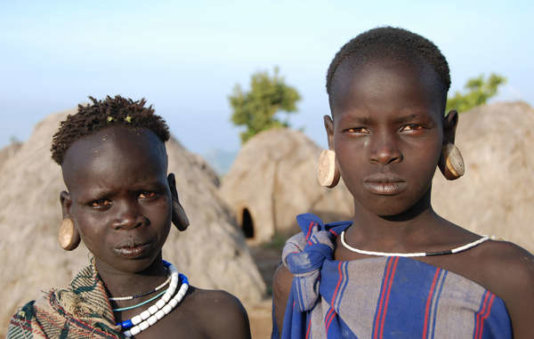- About
- Topics
- Picks
- Audio
- Story
- In-Depth
- Opinion
- News
- Donate
- Signup for our newsletterOur Editors' Best Picks.Send
Read, Debate: Engage.
| April 17, 2013 | |
|---|---|
| tags: | #Africa, #dam, #DfID, #ecology, #Ethiopia, #Kenya, #USAID |
| located: | Ethiopia, Kenya |
| by: | FairPlanet Editorial Team |
Over half a million tribal people in both Ethiopia and Kenya face the total destruction of their way of life as a result of large scale infrastructure and agriculture projects.
A report published by Oxford University's Africa Studies Centre, suggests that a government led sugar planting project in Kuraz will cause Lake Turkana's high-water mark to plummet by 22 meters. Lake Turkana is currently the world's largest desert lake, and such dramatic changes are projected to decimate its fish stocks which are vital to the subsistence of local peoples.
 Already, tribespeople from the Bodi, Kwegu and Mursi clans have been forcibly removed from the land to make way for the Kuraz project, and channeled into resettlement areas. Once there, due to the limited space, they are instructed to sell most of their cattle, removing a central aspect of their ongoing efforts to trade and feed themselves. The Bodi tribe have been given notice that food aid will be withdrawn until they agree to move and have reached the new settlement.
Already, tribespeople from the Bodi, Kwegu and Mursi clans have been forcibly removed from the land to make way for the Kuraz project, and channeled into resettlement areas. Once there, due to the limited space, they are instructed to sell most of their cattle, removing a central aspect of their ongoing efforts to trade and feed themselves. The Bodi tribe have been given notice that food aid will be withdrawn until they agree to move and have reached the new settlement.
The report also states that as the new Gibe III dam will interrupt the Omo River's natural flood rhythm, its flow will be curtailed by up to 70%, devastating farming along its banks and potentially facilitating a "major inter-ethnic conflict" as tribes compete over resources.
The Africa Resources Working Group predicts that over 200,000 tribal Ethiopians and 300,000 in Kenyans will suffer irrevocable damage as a results of the dam and plantations.
Another report, The Downstream Impacts of Ethiopia’s Gibe III Dam – East Africa’s Aral Sea in the Making? from campaign group International Rivers, warns that the removal of waters via irrigation channels, and the use of fertilizers may create ecological dead-zones in this part of the Omo River. International Rivers state that the "destruction of livelihoods in the Lower Omo and the coercion necessary to appropriate their lands for plantation agriculture will severely disrupt the lives of an estimated 200,000-300,000 people", and asks for funding to campaign for the dam to be halted.
After lobbying by Survival International, the UK's Department for International Development sent officials to the Lower Omo region in January 2012, to investigate claims of government intimidation of Mursi and Bodi villagers. The officials were given accounts of "arrests and beatings; the deliberate destruction of grain stores; of denied access to the Omo River; and of the widespread use of the military to intimidate people into giving up their land". There were also numerous accounts of rape.
Despite this, both DFID and USAID continue to provide funds to Ethiopia’s ‘Protection of Basic Services’ program, which is reported as indirectly funding the forced resettlement of thousands of tribal people.
Stephen Corry, Director of Survival International, commented that "UK money is bankrolling the destruction of some of the best-known pastoralist peoples in Africa. Taxpayers should be outraged, but they probably won’t be surprised. The UK government is renowned for only paying lip service to human rights obligations where tribal peoples are concerned. When it comes to human rights in Ethiopia, DFID’s many commitments are worthless – the department consistently ignores both its own policies and the laudable conventions it has signed up to".
A version of this story was originally published by Survival International. Sign their petition against the Gibe III dam here...
Image © Survival International
By copying the embed code below, you agree to adhere to our republishing guidelines.

